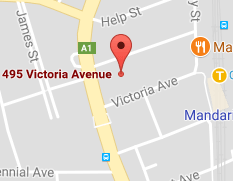Click Here to view our Year End Tax Planning Checklist newsletter.
legislation
2017 07 Year End Employer Obligations
As the 2017 financial year has just finished we would like to take this opportunity of thanking you for your business over the past 12 months. For those of you who are Employers we recommend reviewing the attached Newsletter to ensure you are aware of and have attended to all the necessary compliance matters affecting your business.
2018 05 Federal Budget 2018 – How will it impact you and your business?
The tax and superannuation highlights of Tuesday night’s Budget are summarised below:-
2018 08 Casual Workers - Leave Entitlements

Casual workers aren’t normally entitled to be paid for any leave entitlements such as annual leave or long service leave. Their hourly pay rates and other employment conditions generally reflect this fact.
The Federal Court has recently handed down a decision however to grant a casual worker annual leave entitlements. The decision follows The Fair Work Commission deciding to incorporate a ‘model casual conversion’ clause into 85 modern awards, including in the retail, restaurant, banking, aged-care, agriculture, airline, mining, maritime and transport industries. Some commentators are suggesting that this judgment could see a mass conversion of casual workers into permanent employees. Potentially those workers would automatically be entitled to annual leave and sick pay for each year of service, along with various other benefits. In a similar case earlier this year in the Federal Circuit Court a casual worker won a claim for 15 years worth of annual leave entitlements! That case was about a dispute as to whether or not the worker was employed as a casual or a permanent employee.
These decisions should motivate business owners to carefully examine all applicable modern awards that may apply to their staff, particularly where long term, casual type staff are employed. Employers should check all applicable modern awards for their staff to identify whether a 'model casual conversion' clause has been written in and what the term is for casual employment to be considered for conversion to permanency.
Employers could face claims from workers for entitlements reserved for permanent employees, such as claims for annual leave, personal leave and for payment of a notice period on termination as well. Workers who are employed under a casual employment contract and who have been sick may have a right to claim for sick leave taken in the past.
The Court also added that an employee's status may change during the course of an employment. What is agreed to at the commencement of employment is relevant to the characterisation process (ie casual v’s permanent), but employment which commences as casual employment may become permanent full-time or permanent part-time because its characteristics change to reflect those of an on-going part-time or full-time employment.
The Federal Court decision could also see organisations targeted for punitive fines for being in breach of the Fair Work Act. The Federal Court has ordered a hearing to decide what pecuniary penalties should be imposed on the company involved for failure to meet its Fair Work obligations.
In the future employers may want to consider more carefully why they employ casual staff. Typically, employing casuals on a long-term basis is far more expensive than employing a permanent employee and these recent cases cast a new uncertainty over entitlements for casual employees.
If in doubt concerning these matters please contact your StewartBrown Partner or Manager. If you have significant numbers of casual staff in your business you might also seek advice from a lawyer specialising in employment law.
2018 08 GST On Low Value Imported Goods - Risk For Aussie Retailers

From 1 July 2018, GST applies to sales of low value imported goods (valued at $1,000 or less) to consumers in Australia. This measure attempts to treat such imported goods in the same way as goods purchased domestically.
Australian retailers need to be careful with this new law to ensure that they aren’t incorrectly charged GST by overseas suppliers. Overseas suppliers, if they have to register for GST, can get what is called a simplified GST registration. This means that they don't have to obtain an ABN and they can't claim input tax credits, but they don't have to issue a tax invoice to the Australian retailer they sell through. It’s only when they sell direct to an Australian customer that they need to charge and collect the GST.
The GST changes are meant to target consumers, so Australian retailers registered for GST should not be charged GST on low value goods imported for use in their business. To avoid any confusion, Australian retailers should therefore provide their ABN and state they are registered for GST to their overseas suppliers.
It's quite common for Australian retailers to warehouse stock in China, Singapore, or elsewhere in Asia, and then sell goods directly to a customer. These goods are generally mailed to customers through the post and previously no GST was added to the sales value. Australian suppliers who deliver goods to Australian consumers from overseas into Australia will now have to levy GST on each of those sales.
If you think this may be an issue for your business and are unsure of the new rules please contact your StewartBrown Partner or Manager to discuss further.
2020 07 JobKeeper Version 2.0 Special Edition Newsletter
Welcome to this special edition of the StewartBrown newsletter where we update you on the proposed changes to the JobKeeper program announced earlier this week.
On Tuesday 21st July 2020, the Australian Government has announced proposed changes to payments under the JobKeeper and JobSeeker schemes and we summarise these for you.
Click here to view or download a copy of this newsletter.
2020 07 Year End Employer Obligations and Employment Update For the year ending 30 June 2020
This special edition of our newsletter is to remind you of your 2020 financial year employer obligations and provide you with an update on employment matters:-
2020 08 JobKeeper Version 3.0 Special Edition Newsletter
Welcome to this special edition of the StewartBrown newsletter where we update you on proposed further changes to the JobKeeper Payment scheme announced recently.
On Tuesday 21st July 2020, the Australian Government has announced proposed changes to payments under the JobKeeper and JobSeeker schemes and we summarise these for you.
Click here to view or download a copy of this newsletter.
2020 09 StewartBrown Special Newsletter - JobKeeper Extension
Welcome to this special edition of the StewartBrown newsletter where we update you on the recently enacted changes to the JobKeeper program. The JobKeeper Extension changes were previously referred to as JobKeeper 2.0 and JobKeeper 3.0 in previous newsletters.
The changes are quite complex and this newsletter cannot possibly cover all situations so we strongly advise you to seek guidance from your StewartBrown Manager or Partner if further assistance or clarification is needed.
To view or download a copy of this special edition newsletter, click here.



